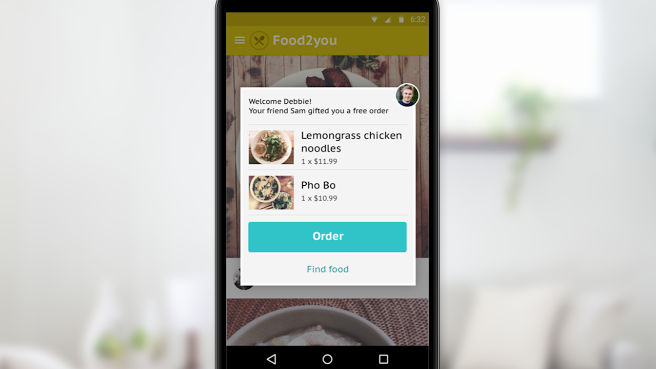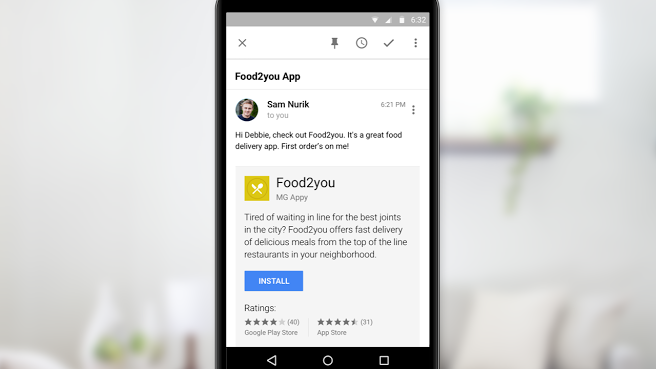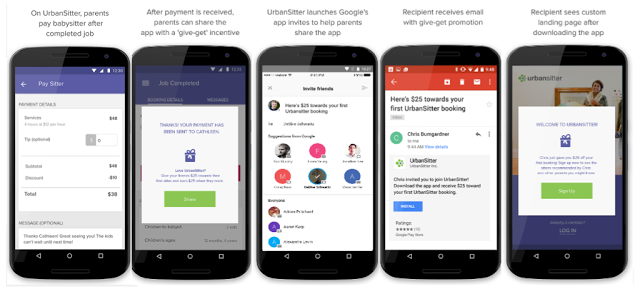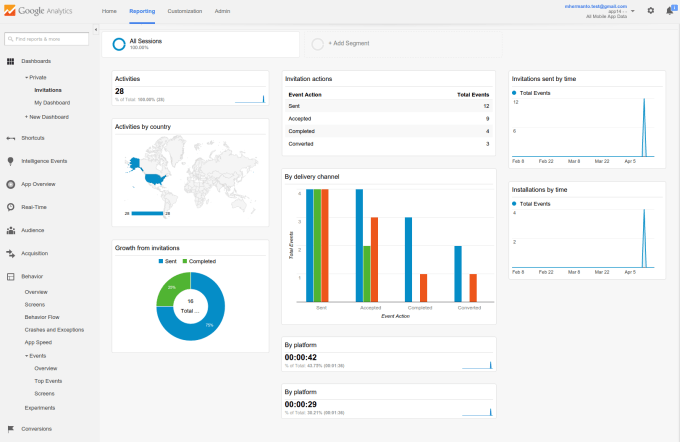Google has debuted a new product called “App Invites” aimed at helping mobile app developers grow their application’s user base. Now in beta for both iOS and Android, App Invites includes a set of standardized tools for sending out app invites over SMS and email, highlighting recommended contacts, creating personalized onboarding experiences for new users, and measuring the success the app invites you’re using via custom reports.
The toolset arrives at a time when a number of mobile application makers, especially in the messaging app space, are tapping into users’ address books saved on their phone in order to help users find friends who already on the service, as well as others they want to invite to join them. With Google’s new App Invites tools, mobile developers would have an easier way of designing their app’s referral and onboarding flows.

“App Invites” goes beyond offering users a simple list of contacts to invite to the app. It’s a smart service that can actually recommend which contacts to invite and the preferred method of delivery for those invites. App Invites can recommend a users closest contacts, Google says, noting that its suggestions are based on the interactions between the sender and their contacts across Google apps, like Gmail and Hangouts.
For example, cooking app Yummly, an early tester, is using App Invites to suggest their app to those who love to cook or who are interested in food, the company says.
The invites can be sent out over SMS or emails which include an “install” button right in the body of the message. On Android, the install process is even easier – users click on “App Invite” and can immediately download the app from the Google Play store without first being taken to a web browser in between.

In addition, developers can deep link to specific pages in their app as part of this referral process. This allows users to do things like share a discount code with a friend, for example. Other testers including The CW and Urban Sitter, are using the deep linking capabilities to make the experience more personal, too.
For instance, The CW lets users share their favorite shows with selected friends, and is integrating the feature into its episode sharing function. That way users will be able to tell their friends about a favorite episode or series in a way that more closely resembles a true word-of-mouth recommendation.
Meanwhile, Urban Sitter is allowing parents to recommend favorite sitters with friends and other Google contacts.

The ability to make these invites more personal is one of the better features of the new product. In the past, SMS and email invites have often left users feeling like they’ve spammed their friends with junk messages. And because so many app developers have abused app invite systems in the past, people got used to ignoring friends’ messages about new apps, assuming they were yet again the victim of app spam.
After the App Invites system is set up, developers can measure the effectiveness of their app invites using Google Analytics custom reports, notes Google. A variety of reports are charts are available in an online dashboard. Here, developers can track how many invites were sent, accepted, completed as well as when, where and on what platforms those invites were shared or led to conversions.

The new product is part of Google’s larger rollout of Google Play services 7.5, and is now available in beta to any interested developer. The App Invites developer website offers both sample code and detailed instructions on setting up the system on both iOS and Android applications.
Google’s service competes with Facebook’s own “App Invites,” announced at this year’s F8 developer conference. Similarly, Facebook’s app invites platform lets users share personalized messages – but in Facebook’s case, these can even be customized on a per invite basis using user-generated photos, product images (like in shopping apps), or even screenshots of gameplay in games. Facebook also recommends who to share with, based on the likelihood the person will install the app.
However, Facebook’s system is designed to work within the social network itself – app invites are sent out through push notifications and in the Facebook app, not over SMS or email.

